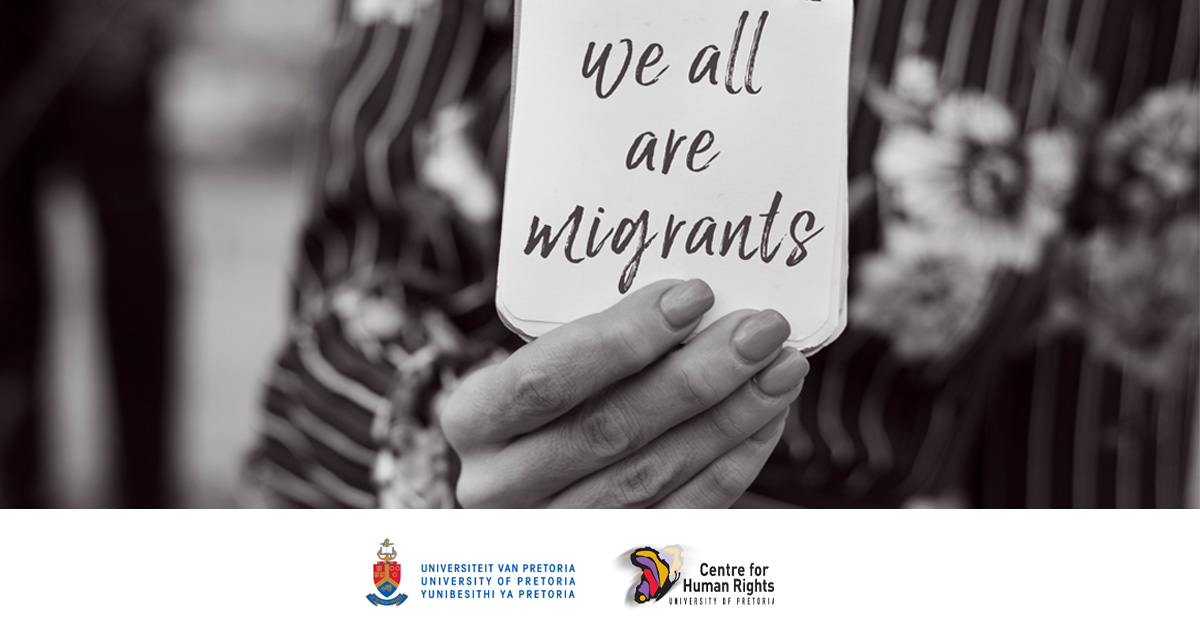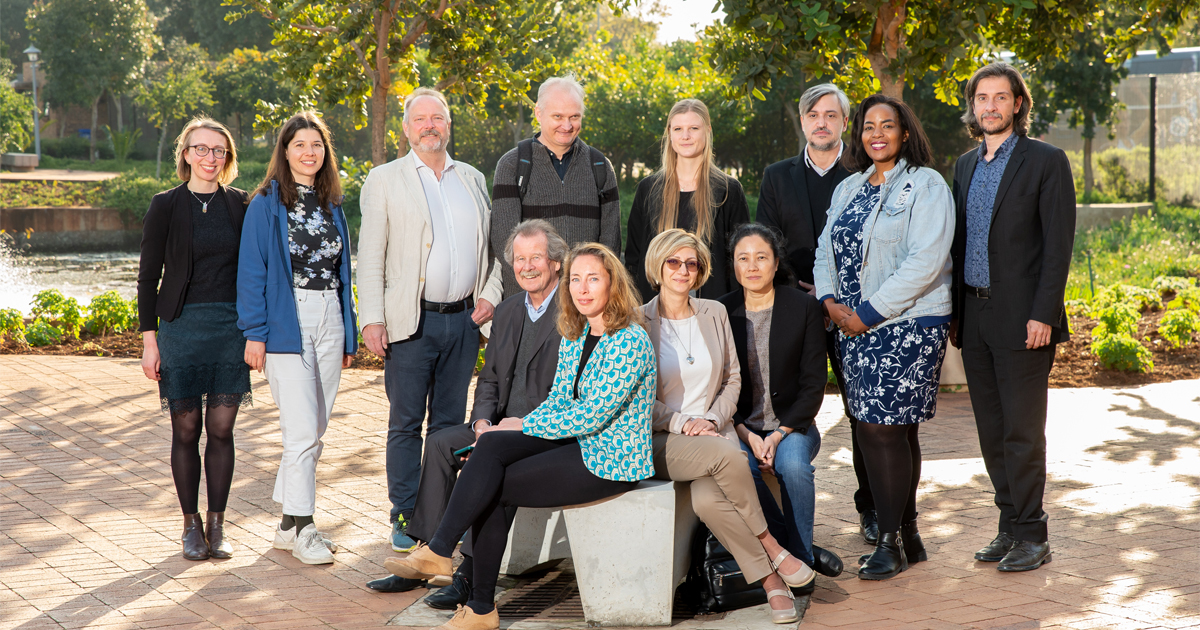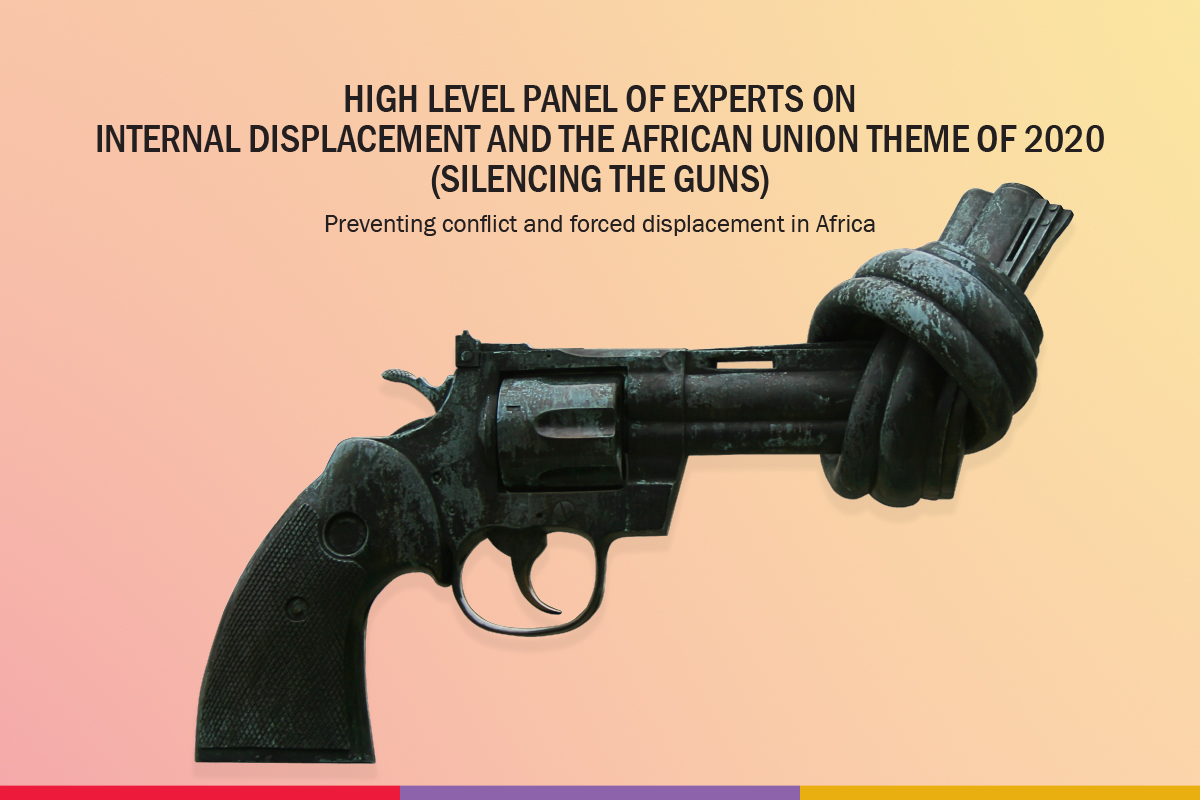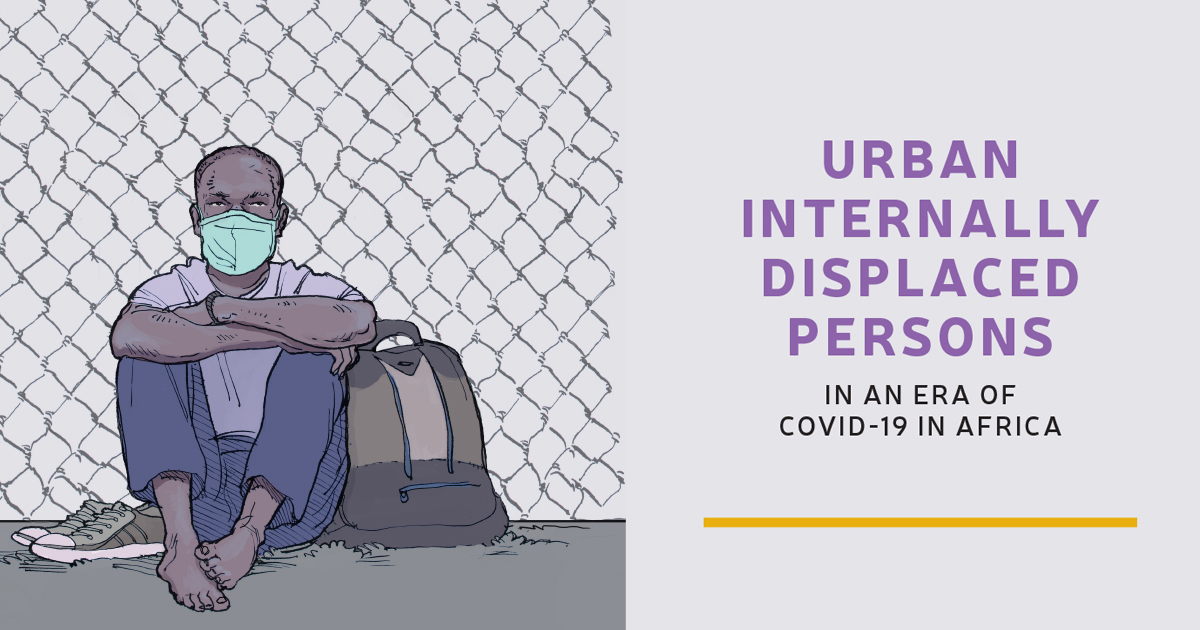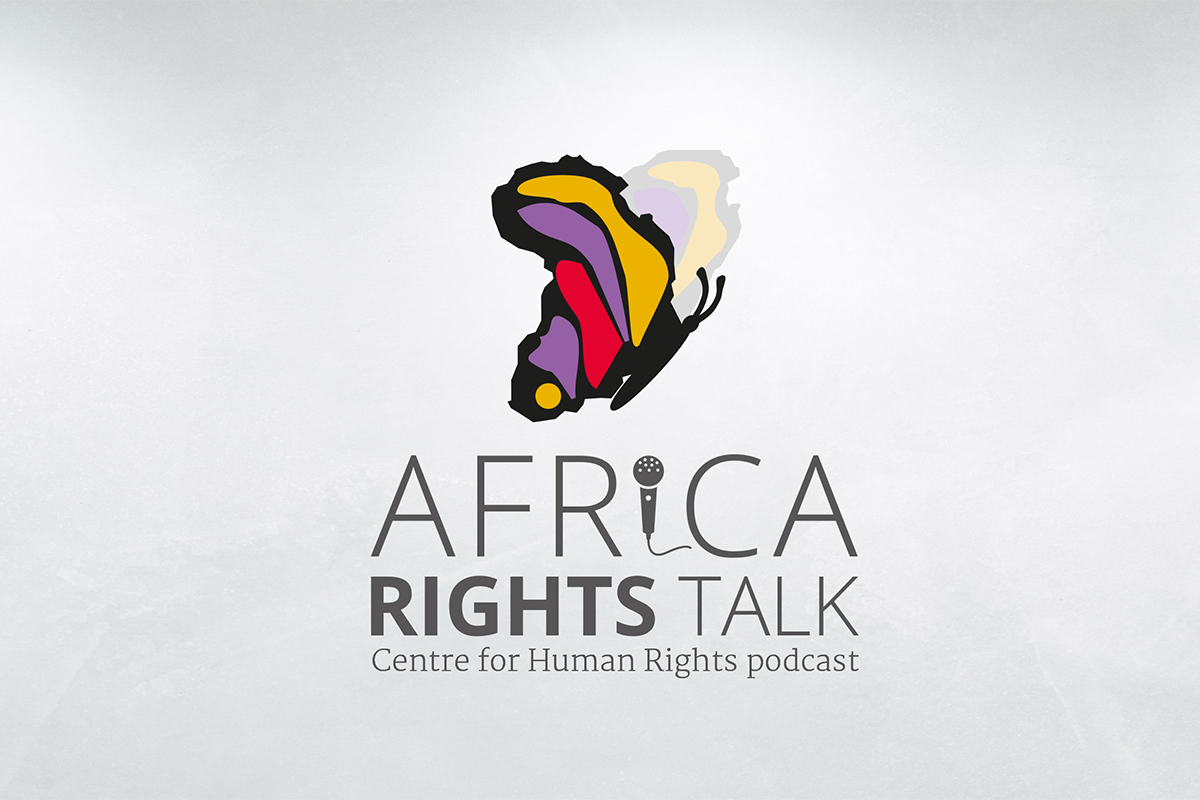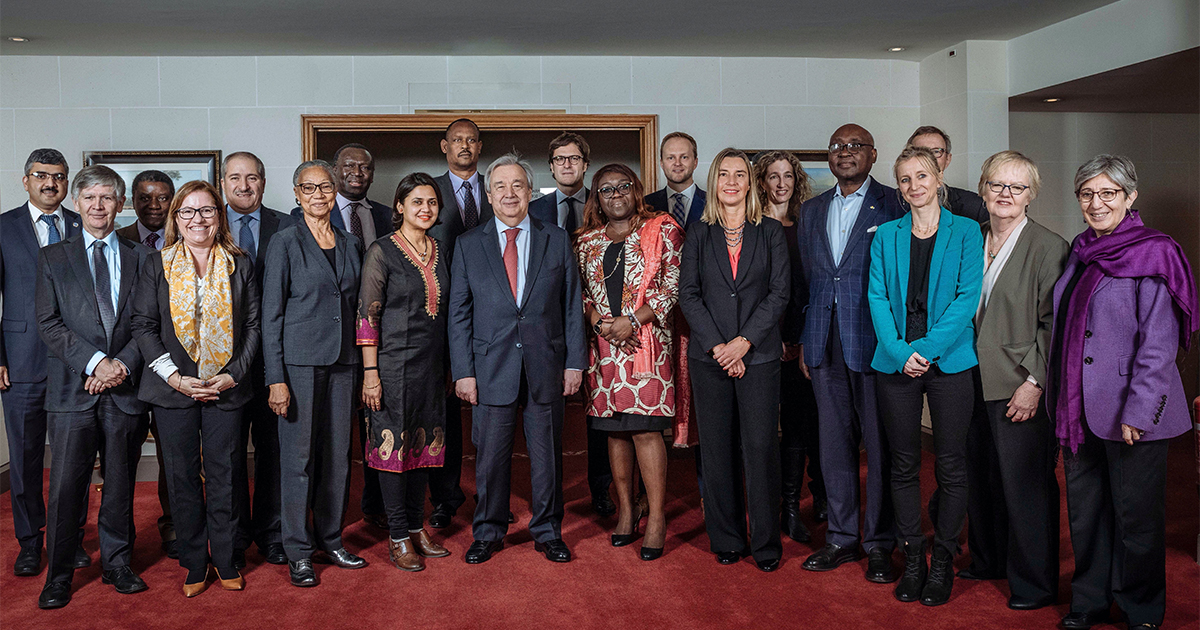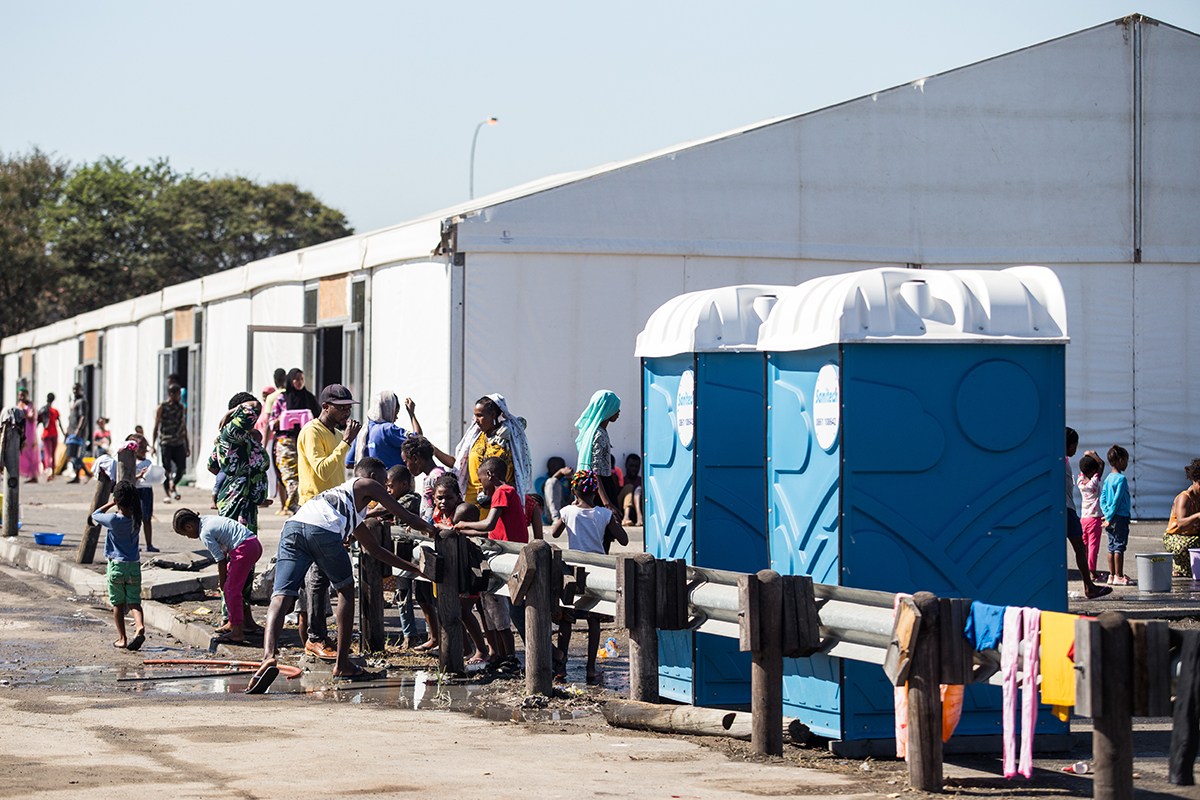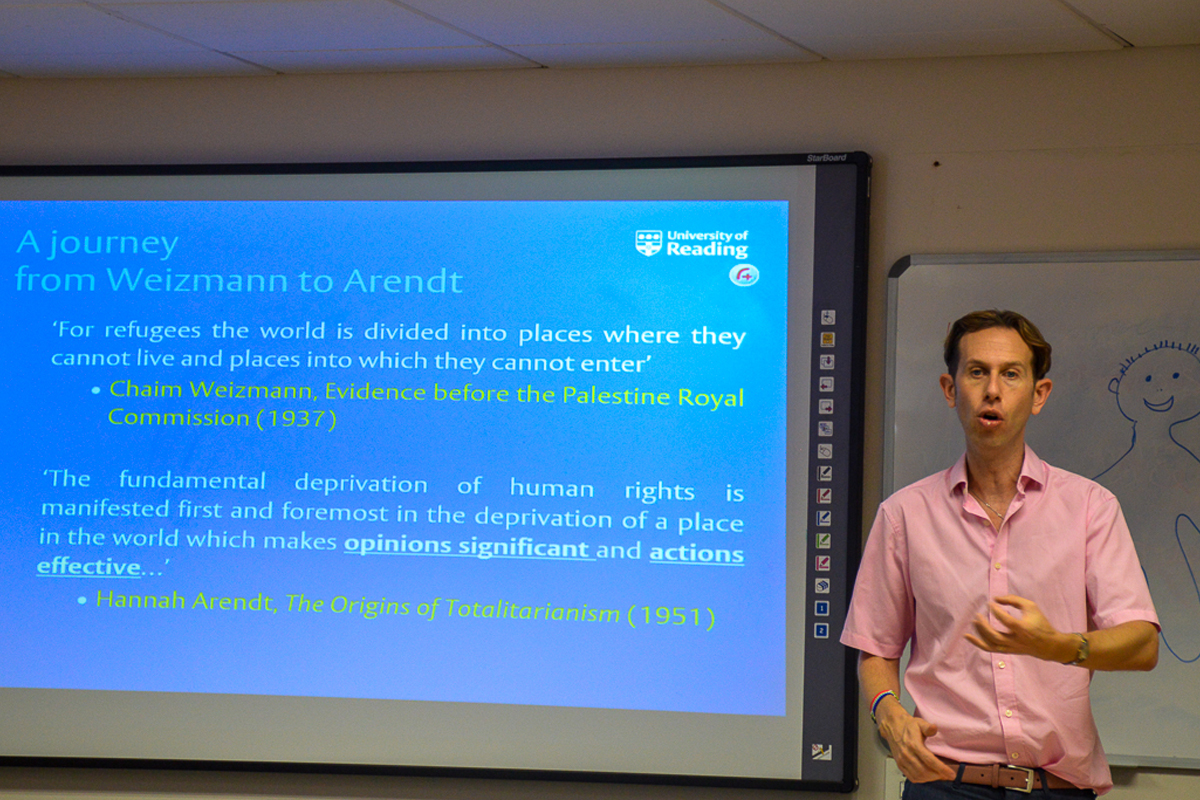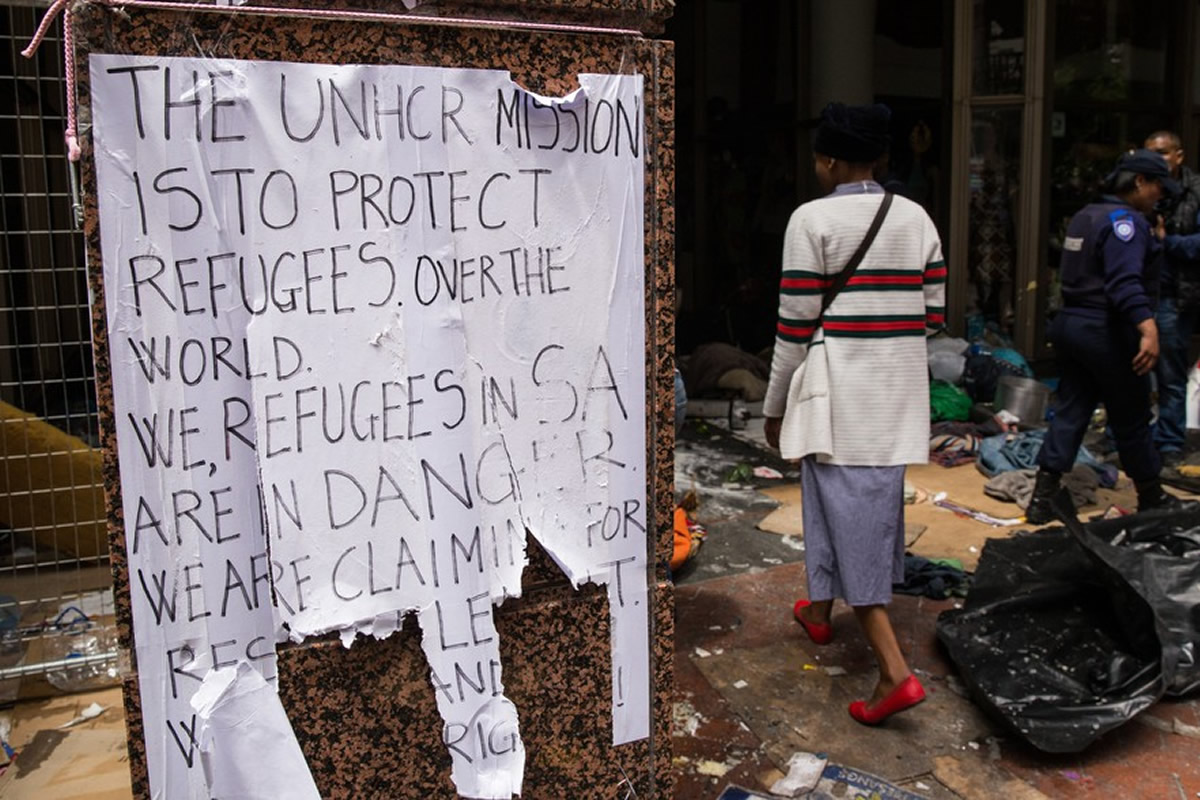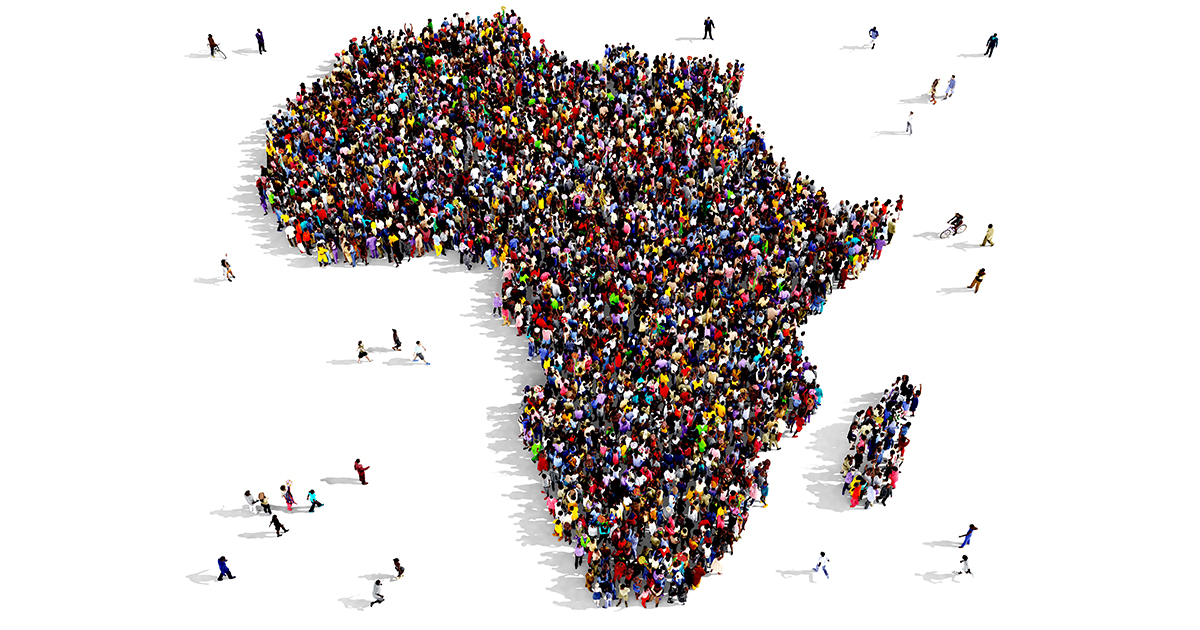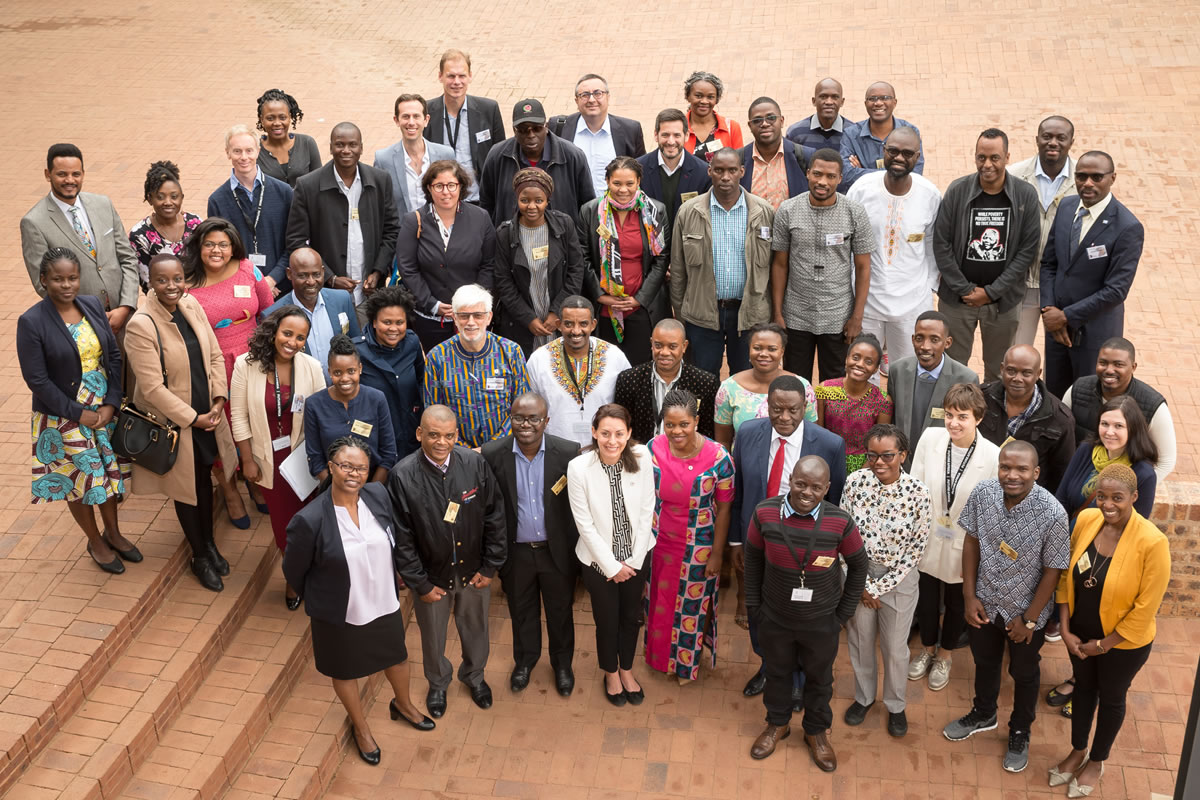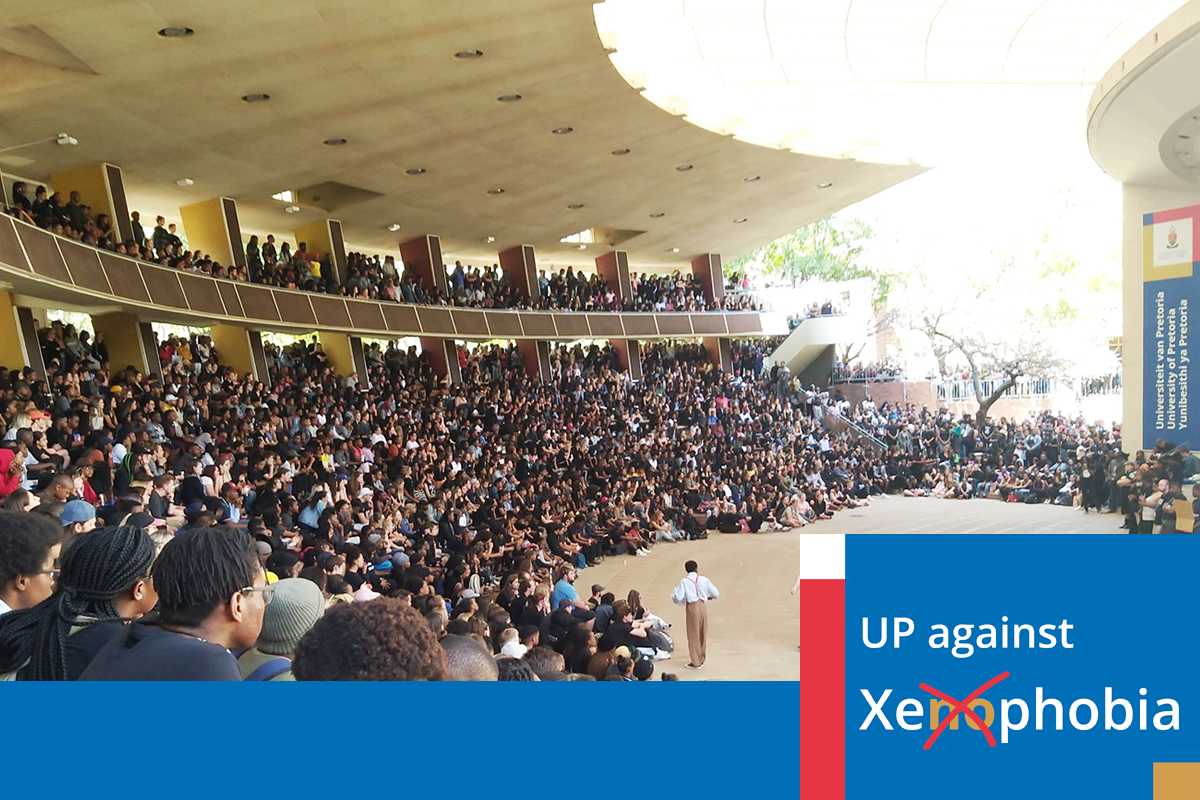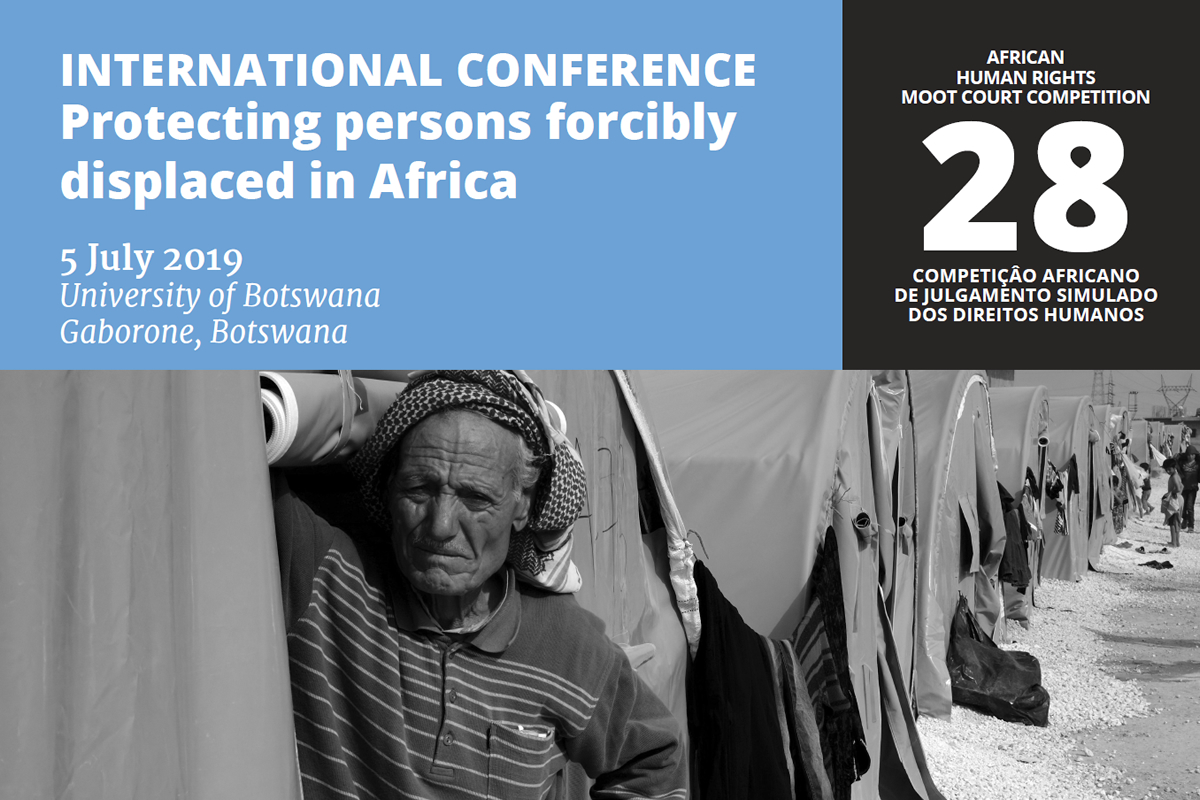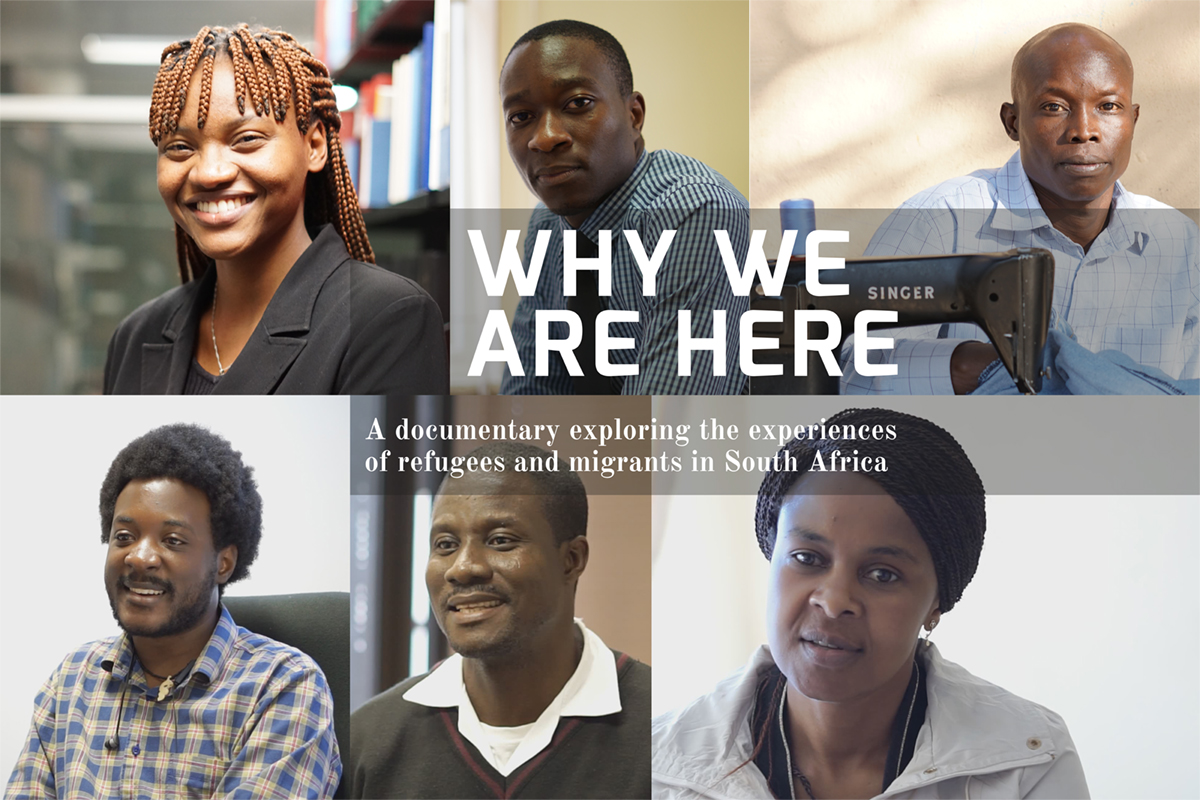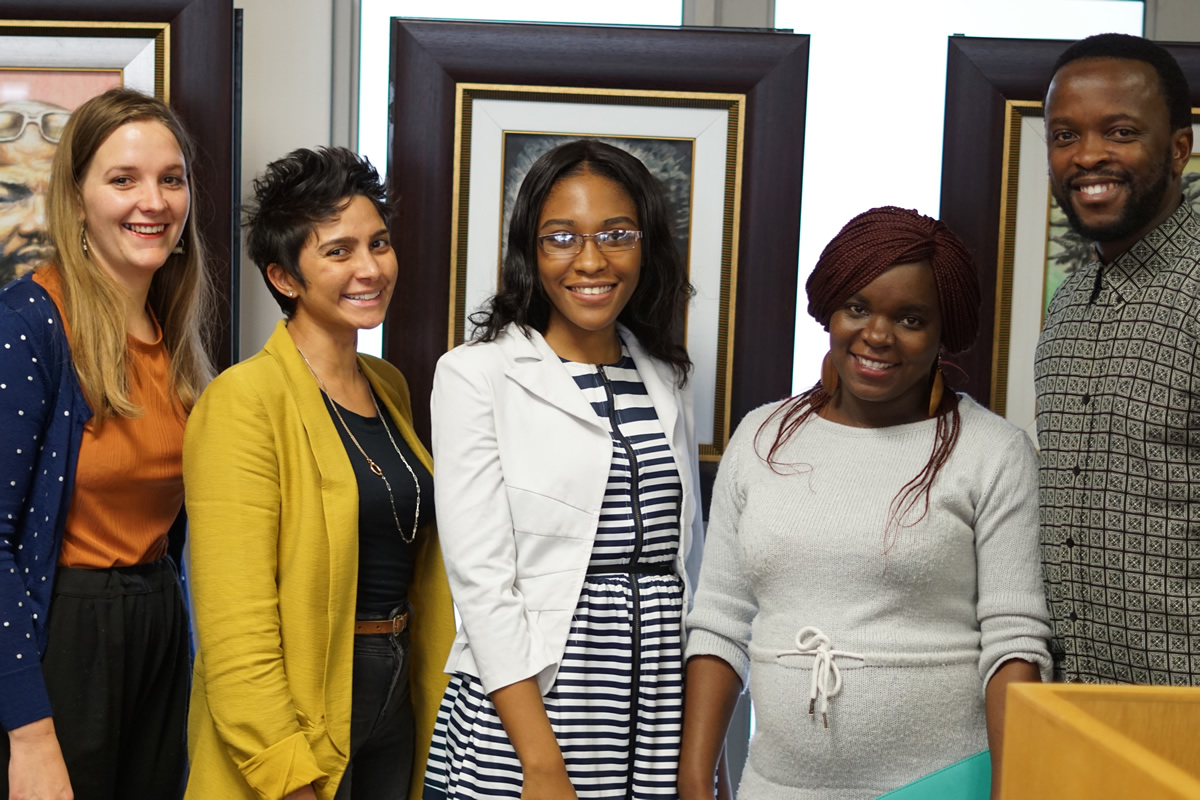- Details
On 29 April 2024, the Centre for Human Rights, Faculty of Law, University of Pretoria (Centre), with the financial assistance of the Embassy of Switzerland in South Africa, organised a workshop for grassroots organisations working in the area of the protection of migrants, migrant-led organisations, and migrants’ rights advocates on early warning and urgent response to xenophobic violence in South Africa. This workshop falls under the broader anti-xenophobia project of the Centre, which aims to counter xenophobia in South Africa and enhance the promotion of the rights of refugees and other migrants.
- Details
Over 100 students, academics and experts from more than 50 countries joined the four-day long Global Classroom 2022 on internal displacement, amiably hosted by the Centre for Human Rights, University of Pretoria. The programme included presentations by seven student research teams on regional approaches and case studies on topics such as climate disaster-induced displacement; the impact of ongoing conflicts on displaced women and children; an analysis of the Kampala Convention and the UN Guiding Principle on internal displacement; and the role of state and non-state organisations in supporting IDPs.
- Details
The year 2020 is the African Union Year of Silencing the Guns. The rhetoric provides a strong impetus for providing critical solutions to conflict in Africa. As the primary driver of internal displacement in Africa, conflict accounts for the continent’s 12.5 million internally displaced persons (IDPs). Through reflections from key experts in the African region, this webinar provides insights on critical strategies for silencing the guns and evidently preventing forced displacement in Africa.
- Details
On 8 October 2020, the Centre for Human Rights, Faculty of Law, University of Pretoria, in collaboration with the Global Engagement Network on Internal Displacement in Africa (GENIDA), hosted a webinar on the situation of urban Internally Displaced Peoples in time of COVID-19 and how protection can be secured and enhanced.
- Details
An analysis of the deteriorating human rights situation in Zimbabwe
In conversation with Mr Brian Kagoro
- Details
The Global Engagement Network on Internal Displacement in sub-Saharan Africa (GENIDA), which forms part of the global Interdisciplinary Network on Displacement, Conflict and Protection (INDCaP), makes the following submission in response to the Call for Inputs disseminated by the UN High-Level Panel (HLP) in March 2020.
- Details
The Centre for Human Rights, University of Pretoria and the Centre for Applied Legal Studies, University of the Witwatersrand, are deeply concerned about the situation of migrants in the territory of South Africa during this COVID-19 crisis.
- Details
The political exclusion of refugees was discussed at a recent lecture hosted on 18 February 2020 by the Centre for Human Rights, University of Pretoria. The theme of the lecture was on the voting rights of refugees. Students on the Master’s programmes in Human Rights and Democratisation in Africa (HRDA) and Multidisciplinary Human Rights (MDHR) were also in attendance.
- Details
Exploring issues affecting migrants in South Africa
In conversation with Ms Abigail Dawson
- Details
The Centre for Human Rights, University of Pretoria, is deeply concerned about the eviction of refugees and asylum seekers who were holding a sit-in at the United Nations High Commissioner for Refugees (UNHCR) office in Cape Town, South Africa. The evictions were carried out by the South African Police Service on 30 October 2019.
The evictions were conducted in a violent manner, violating the dignity of those affected. Furthermore, scenes of children being forcibly separated from their parents are especially concerning, taking into account the standards dealing with the protection of the rights of children that South Africa has committed itself to.
- Details
WE, PARTICIPANTS of the International Conference on the Protection of Forced Migrants in Africa, gathered on 6 and 7 September 2019 at the Future Africa campus of the University of Pretoria, South Africa;
INVOKING the notion of Ubuntu; RECOGNIZING the development of progressive laws and policies governing forced displacement and migration adopted by several countries in Africa; and CALLING for a movement away from rhetoric towards the effective implementation of existing laws and policies;
- Details
An international conference on forced migration in Africa organised by the Centre for Human Rights, Faculty of Law, University of Pretoria drew attention to the plight of forced migrants – internally displaced person (IDPs) and refugees – on the continent. It was held against the background of declaration by the African Union of 2019 as the “Year of Refugees, Internally Displaced Persons and Returnees: Towards Durable Solution to Forced Displacement in Africa”.
- Details
The Centre for Human Rights, University of Pretoria, strongly condemns the recent xenophobic violence and attacks against foreign nationals in South Africa. The Centre calls on the government to develop a targeted intervention strategy. The cycle of outrage, followed by commitment to take action, but then inevitably fading into inaction, should be broken.
- Details
On 5 July 2019, the Centre for Human Rights, University of Pretoria in conjunction with the Faculty of Law, University of Botswana organised an International Conference on the Protection of Persons Forcibly Displaced in Africa in Africa. The Conference was held as part of the #AfricanMoot2019 in Gaborone, Botswana. Presenters were drawn from a wide range of backgrounds focusing on a plethora of issues relating to the issue of forced displacement in Africa.
- Details
The United Nations General Assembly decided that 20 June would be celebrated as World Refugee Day in Resolution 55/76. The significance of this day is to highlight the situation refugees across the world are facing and urge the global community to stand in solidarity with them. To mark this day, the Advocacy Unit of the Centre developed a documentary as part of the #AfricanMigrantsMatter campaign.
- Details
The Democracy, Transparency and Digital Rights Unit of the Centre for Human Rights (the Centre), University of Pretoria, hosted an African Day Celebration on 23 May 2019. The aim of the event was to celebrate the diversity of Africa and what it means to be African. The event further aimed to facilitate a conversation on Pan-Africanism and how South Africans as a people, can stand in solidarity with African migrants on the injustices and inhuman experiences of xenophobia in South Africa.

